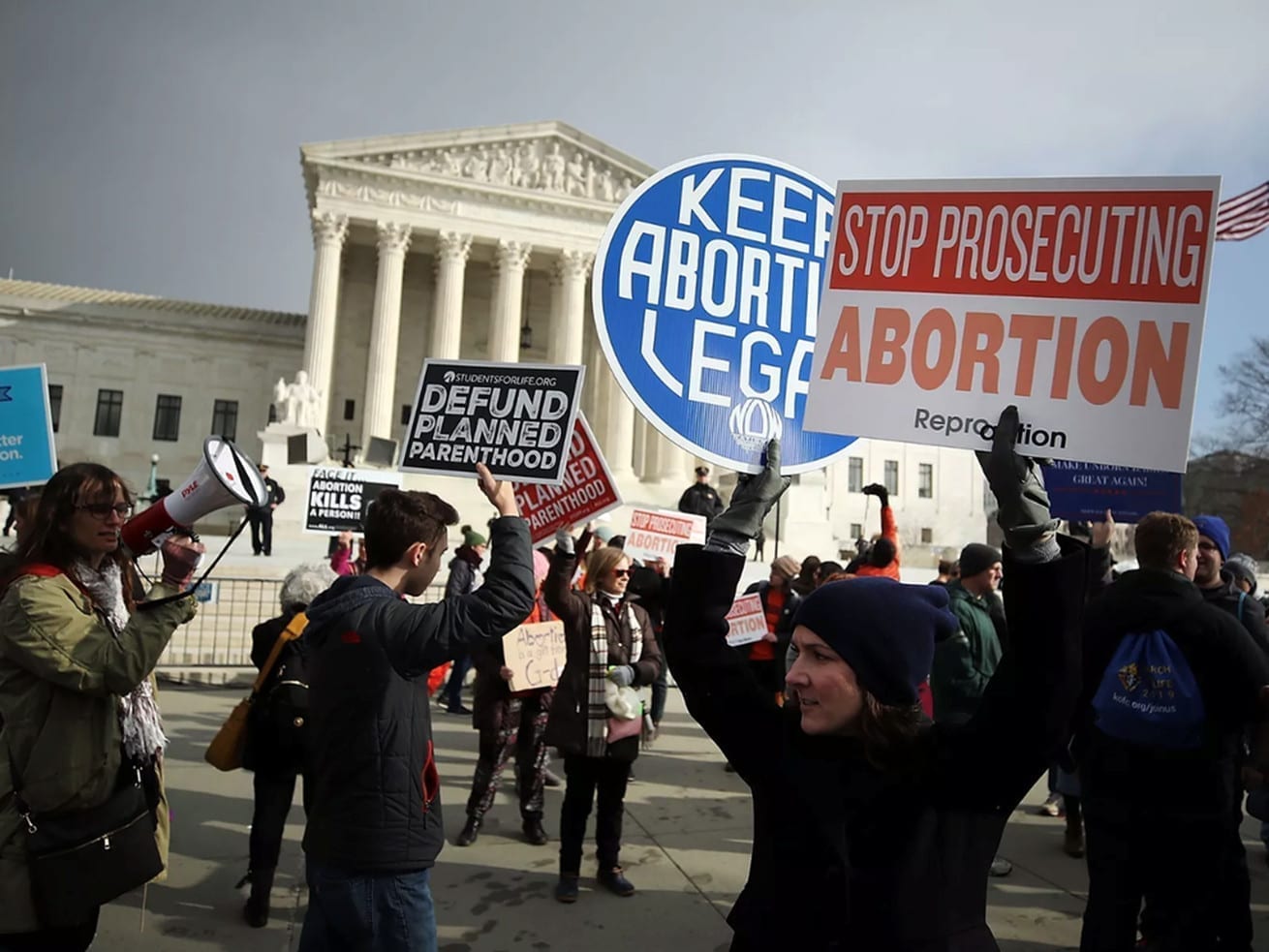Vox Sentences is your daily digest for what’s happening in the world. Sign up for the Vox Sentences newsletter, delivered straight to your inbox Monday through Friday, or view the Vox Sentences archive for past editions.
Alabama may soon pass the most restrictive abortion ban in the nation; South Africa’s ruling party is projected to win the elections, despite declining support.
Alabama’s abortion ban is delayed — for now
/cdn.vox-cdn.com/uploads/chorus_asset/file/16236749/5.10.png) Mark Wilson/Getty Images
Mark Wilson/Getty Images- Alabama’s Senate was on the brink of passing the nation’s most restrictive abortion bill on Thursday when it decided to table the vote until Tuesday. [AL.com / Mike Cason]
- The new Alabama bill would be a near-total ban on abortion with few exceptions and a penalty of up 99 years in prison for doctors who perform the procedure. The bill is a direct challenge to Roe v. Wade. [NPR / Laurel Wamsley]
- The vote was delayed after some Republicans tried to take out provisions that would allow abortions in the case of rape or incest. A shouting match erupted when Democratic lawmakers realized the exceptions were hastily removed without a roll call vote. [NBC News / Elisha Fieldstadt]
- With this new change, the only exception to the abortion ban would be cases where pregnant women face serious health risks. [Reuters / Daniel Trotta]
- Democrats said they want a roll call vote so the names of lawmakers who don’t support abortion exemptions are public. [Washington Post / Emily Wax-Thibodeaux and Ariana Eunjung Cha]
- Alabama is one of more than a dozen states that are trying to heavily restrict abortion rights. Most recently, Georgia’s governor signed a “fetal heartbeat” bill that bans most abortions after six weeks, before many women even know they’re pregnant. [Vox / Anna North and Catherine Kim]
- These states have been emboldened by the conservative realignment of the Supreme Court following Justice Brett Kavanaugh’s nomination and are hoping that the Court will redefine the limits of reproductive rights in their favor. [NYT / Alan Blinder]
An uneasy win for South Africa’s main party
- The African National Congress, a party riddled with corruption scandals, looks likely to win the South African elections — but the victory was not an easy one. [BBC]
- ANC is projected to win by around 57 percent, its worst performance since the country embraced democracy. Voter turnout also dropped from 73 percent in 2014 to 66 percent — which is low when considering that black South Africans only gained the right to vote a generation ago. [NYT / Norimitsu Onishi]
- ANC, the party of Nelson Mandela, has led South Africa since the apartheid ended in 1994. Public trust in the party, however, rapidly fell during the reign of President Jacob Zuma, who was eventually forced to resign in 2018 due to corruption scandals. [Guardian / Jason Burke]
- Cyril Ramaphosa, also of ANC, took over afterward and will most likely continue to govern for the next five years. He has tried to tackle corruption in the past, but he still has a tough road ahead of him. [Bloomberg / Michael Cohen and Paul Vecchiatto]
- Younger voters are especially wary of the ANC. While older generations have a personal connection to the ANC because they remember the struggle for liberation, voters born after apartheid are less optimistic and embrace a more progressive platform — leading to the steady growth of far-left parties like the Economic Freedom Fighters. [Vox / Jen Kirby]
- Although Ramaphosa may win the election, the real battle begins now. He will have to grapple with the country’s failing economy, an intense debate over land reform and growing inequality during his tenure. [CNN / Euan McKirdy, David McKenzie, and Deborah Bloom]
- Some say ANC’s low numbers in the election might actually be a good thing for Ramaphosa since it will justify his plans for radical reform within the party. One thing is clear: The people are giving him one last chance to prove that the ANC can return to its glory days. [Daily Maverick / Ferial Haffajee]
Miscellaneous
- Instagram is banning hashtags used to spread anti-vax hoaxes, such as #VaccinesCauseAIDS and #VaccinesArePoison. [BBC]
- Passing the ballot measure to decriminalize hallucinogenic mushrooms in Denver may have been the easy part. City authorities are now struggling to hammer out details on how to implement the policy. [CityLab / Lindsay Fendt]
- A California teacher was on medical leave for cancer treatment. On top of her medical bills, when she went over her allotted 10 sick days, she was forced to pay for a substitute teacher out of her own pocket. [CNN / Michelle Lou]
- Prepare to be mesmerized: Kacey Musgraves stars as a cosmic centaur in her new music video. [NPR / Joshua Bote]
- France is holding an international competition for a new design of Notre Dame’s spire. Some designers are letting their imagination run wild: think diamonds, glass, and gold. [NYT / Alex Marshall]
Verbatim
“They are saying to women, ‘We don’t trust you to make these deeply personal decisions.’ It can be very confusing — what is real and what is not. And we’ve been hearing from concerned women as these bills bubble up.” [Staci Fox, the Atlanta-based president and chief executive of Planned Parenthood Southeast, on the recent attempts to limit abortion]
Watch this: The real experiments that inspired Frankenstein
When Mary Shelley published her iconic novel in 1818, raising the dead seemed to be the near future. [YouTube / Coleman Lowndes]
Read more
Why there are suddenly so many doctors and nurses on Instagram
Egg-laying hens live in horrific conditions. Washington state just passed a law to change that.
Anita Hill: #MeToo could have started in 1991. Here’s why it didn’t.
Author: Catherine Kim
Read More



